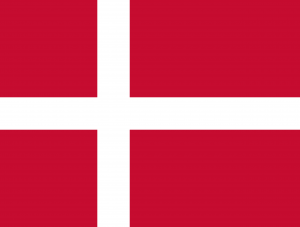Difference between revisions of "Language/Danish/Culture/Religion"
m (Quick edit) |
m (Quick edit) |
||
| Line 62: | Line 62: | ||
[[Category:0-to-A1-Course]] | [[Category:0-to-A1-Course]] | ||
[[Category:Danish-0-to-A1-Course]] | [[Category:Danish-0-to-A1-Course]] | ||
==Related Lessons== | |||
* [[Language/Danish/Culture/Music|Music]] | |||
* [[Language/Danish/Culture/Architecture|Architecture]] | |||
* [[Language/Danish/Culture/Denmark-Timeline|Denmark Timeline]] | |||
* [[Language/Danish/Culture/Film|Film]] | |||
* [[Language/Danish/Culture/Art-and-Culture|Art and Culture]] | |||
* [[Language/Danish/Culture/Famous-Danish-People|Famous Danish People]] | |||
* [[Language/Danish/Culture/Sports|Sports]] | |||
* [[Language/Danish/Culture/Holidays|Holidays]] | |||
* [[Language/Danish/Culture/Media|Media]] | |||
{{Danish-Page-Bottom}} | {{Danish-Page-Bottom}} | ||
Revision as of 21:54, 14 March 2023
Religion plays an important role in Danish culture, with the majority of the population adhering to the Evangelical Lutheran Church of Denmark. In this lesson, we will learn about the religious beliefs and practices in Danish culture.
History
Christianity was introduced to Denmark in the 9th century by the Viking king, Harald Bluetooth. He erected a large stone monument known as the Jelling Stone that tells of his conversion to Christianity and his desire to have all Danes do the same. Since then, the majority of Danes have been Christian, with the Evangelical Lutheran Church of Denmark being the dominant church.
The Evangelical Lutheran Church of Denmark
The Evangelical Lutheran Church of Denmark (also known as the Folkekirken) is the official state church of Denmark. It was established during the Protestant Reformation in the 16th century and has been the dominant church in Denmark ever since.
Today, about 75% of the Danish population is a part of the Folkekirken. Membership is automatic for all Danes at birth but is not mandatory. The church is funded by the state, but a portion of taxes paid by members of the church goes towards supporting it as well.
The church is known for its beautiful architecture, including Gothic cathedrals and traditional Danish yellow churches. The church is also known for its beautiful hymns, which are sung at religious services and during national events.
Religious Holidays
Denmark has several religious holidays that are celebrated by both Christians and non-Christians alike. Some of the most important holidays include:
- Christmas (Jul) - Celebrated on December 24th, Danes typically celebrate with a large feast and the lighting of candles on a Christmas tree.
- Easter (Påske) - Celebrated in the springtime, Danes typically celebrate with a large feast and the exchanging of eggs.
- Pentecost (Pinse) - Celebrated 50 days after Easter, Pentecost is a celebration of the Holy Spirit.
Danish Culture and Religion
While the majority of Danes are Christian and the Evangelical Lutheran Church of Denmark is the dominant church, religion is generally viewed as a private matter in Danish culture. It is not uncommon for Danes to keep their religious beliefs to themselves and not discuss them with others.
Danes are generally very accepting of other religious beliefs and practices. In fact, Denmark is known for being one of the most accepting countries in the world when it comes to religious tolerance. There are also several non-Christian religious groups present in Denmark, such as Muslims and Jews, and they are allowed to practice their religion freely.
Vocabulary
Here are a few Danish words related to religion:
| Danish | Pronunciation | English |
|---|---|---|
| Bibelen | biˈbeːlen | Bible |
| folkekirken | ˈfolːəˌkiɐ̯kən | Evangelical Lutheran Church of Denmark |
| jul | jul | Christmas |
| påske | ˈpɔskə | Easter |
| pinse | ˈpintsə | Pentecost |
Conclusion
Religion is an important aspect of Danish culture and the majority of Danes are members of the Evangelical Lutheran Church of Denmark. However, religion is generally viewed as a private matter and there is a high level of religious tolerance in Danish society. As a Danish language learner, it is important to have an understanding of religious beliefs and practices in Denmark, as well as a basic vocabulary of religious terms.
Related Lessons
